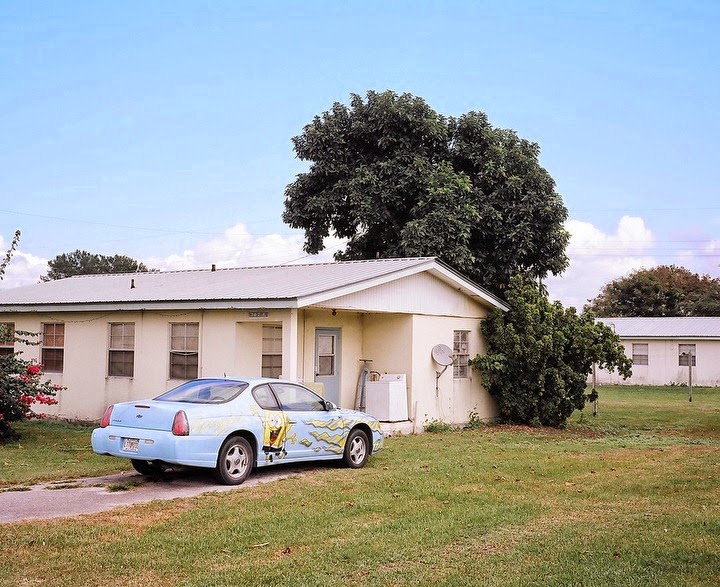Deep in sugar cane county of south Florida, in the US, on the edge of the everglades, about two miles from the nearest town, is a community of around 200 people who live in the small, neat bungalows with manicured front lawns. This is Miracle Village where almost half of the population are convicted sex offenders, many of them recently released from prison and still on probation. Some of the sex offenders abused minors, sometimes their own children, while others viewed pornography, or had sex with underage girlfriends. Some were just dating as teenagers only to have their love became a crime when one of the lovers turned 18. A few were convicted just for exposing themselves. Nevertheless, they are all sex offenders - a stigma they have to carry as long as they live.

Photo credit: Noah Rabinowitz
Being a sex offender is hard in the state of Florida. Unlike other criminals, when a person convicted of sex crimes get out of jail, their troubles are far from over. Under the local Florida laws, such persons are forbidden to live within a thousand feet of a school, a park, or even a bus stop because children might congregate there. Even if offenders find homes that meets all residency requirements, landlords often refuse to rent to them. Being in the sex offender registry renders them effectively unemployable. As a result, hundreds of sex offenders in Florida are believed to be homeless, living under bridges or in the wilderness.
Miracle Village was set up to allow these criminals to live as humanely as possible without violating the state’s strict sex offender residency laws. Originally built in the 1960s to house sugar cane workers, it was converted in 2009 by the late pastor Dick Witherow as a refuge for non-violent sex offenders. Dick Witherow himself was almost charged with statutory rape as a teenager when he got his 14-year-old girlfriend pregnant. Thankfully the judge did not press charge and allowed the two to get married.

Today, Miracle Village provides “safe haven” to non-violent sex offenders. Up to two dozen applications arrive from potential residents to Miracle Village each week, which are sorted to exclude people with a history of violence or drugs, or those certified as pedophiles, to protect the people who are already living there. People with children are also not allowed.
“We label people sex offenders or sexual predators for a wide variety of behaviors,” explained Carey Haughwout, a Palm Beach County public defender. “So, as a result, we have a lot of folks carrying those labels without it really distinguishing who’s dangerous and who isn’t.”
Miracle Village is a self-sustained community. There are anger management and bible study classes, and many go to church. As a condition of their probation, most of the sex offenders attend psychological treatment programmes. Some of the offenders even have jobs in local towns.
Although Miracle Village has been lauded by many, it has also been the target of criticism, especially from locals many of whom are unnerved at having so many sex offenders close by. One neighbor, a mother of three, packed up and moved her family 40 minutes away. Others are not bothered. Edgar Walford, a retiree who moved into the village before the sex offenders arrived, finds the community very peaceful. "They're good people. I've made plenty of friends,” he told BBC.
As a matter of fact, there hasn’t been a single sex crime reported in Miracle Village since it was founded.







No comments:
Post a Comment